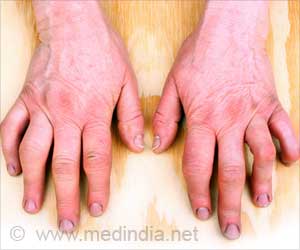A treatment for polycystic kidney disease(PKD), a leading cause of fatal kidney failure worldwide, has been identified by a research team led by Yale biochemist Craig Crews
A treatment for polycystic kidney disease(PKD), a leading cause of fatal kidney failure worldwide, has been identified by a research team led by Yale biochemist Craig Crews, according to a report in the Proceedings of the National Academy of Sciences.
Over 12 million people worldwide suffer from PKD, a genetic disorder that causes uncontrolled growth of cells lining tubules in the kidneys, and results in the formation of many, large fluid-filled cysts in the kidneys.“Unfortunately, aside from kidney transplantation, there has been no cure for PKD, nor has there been a suitable drug treatment to slow its progression,” said Crews, associate professor of chemistry, molecular, cellular & developmental biology and pharmacology. “We hope that is about to change,” he said.
The mesh of Traditional Chinese Medicines (TCMs), current advances in chemistry and fundamental processes of developmental biology and health are a research focus for Crews. According to him, a roadblock in the path to TCMs as a source for new medical treatments is lack of understanding the biology and chemistry of how they work.
Triptolide is a potent, biologically active compound isolated from the medicinal ‘Thunder God Vine’ Tripterygium wilfordii Hook F. The TCM tea Lei Gong Teng made from this plant has been used for centuries, as a therapeutic against cancer, inflammation, and auto-immune diseases. Crews and colleagues showed that triptolide causes cell growth arrest in certain cell types.
Normal kidney tubule cells have a built in switch for regulating their growth — two proteins, PKD1 and PKD2, located on a bristle-like cilium that bends in response to fluid flow across the cell. During kidney development, cells destined to line a kidney tubule grow and divide until the tubule is formed, as sensed by fluid flow in the tubule. Fluid flow bends the primary cilium, giving a signal to stop cell growth. PKD is caused by a mutation in the PKD1 or PKD2 gene causing the cells to miss the “stop growing” signal, allowing them to keep growing, and thus generating a cyst.
In collaboration with Stefan Somlo, M.D., Chief of Nephrology at Yale School of Medicine, who discovered the PKD2 gene, triptolide was tested in a mouse model of PKD. Both fewer and smaller kidney cysts formed in mice lacking PKD1 when they were treated with therapeutic amounts of triptolide.
Advertisement
Source-YALE University
SRM











